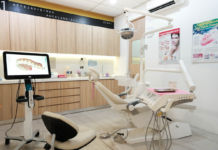The COVID-19 pandemic has significantly impacted global health, economies, and daily life. Testing and management strategies have been crucial in controlling the spread of the virus, diagnosing infections, and managing patient care. This article explores the various contributions to COVID-19 testing and management, highlighting advancements, strategies, and their impact on public health.
Advancements in COVID-19 Testing
1. Development of Diagnostic Tests
The rapid development of diagnostic tests has been a cornerstone of COVID-19 testing efforts:
- RT-PCR Tests: Reverse transcription polymerase chain reaction (RT-PCR) tests detect viral RNA and are considered the gold standard for diagnosing active COVID-19 infections. These tests offer high sensitivity and specificity.
- Antigen Tests: Rapid antigen tests detect viral proteins and provide results within minutes. While slightly less sensitive than RT-PCR tests, they are valuable for mass screening and rapid detection in various settings.
- Antibody Tests: Serological tests detect antibodies produced in response to SARS-CoV-2 infection. These tests help identify past infections and monitor immune responses.
2. High-Throughput Testing
High-throughput testing technologies have enabled large-scale testing, crucial for controlling the pandemic:
- Automated Testing Platforms: Automated systems streamline the testing process, increasing the speed and volume of tests conducted daily.
- Pooling Strategies: Pooling samples from multiple individuals allows for more efficient use of testing resources, particularly in low-prevalence settings.
3. Point-of-Care Testing
Point-of-care (POC) testing has improved accessibility and convenience:
- Portable Testing Devices: Portable devices allow for on-site testing in various locations, including clinics, workplaces, and community centers.
- Rapid Turnaround: POC tests provide quick results, facilitating immediate decision-making and isolation measures.
4. Innovative Testing Methods
Innovative methods have expanded testing capabilities:
- Saliva-Based Tests: Saliva tests are less invasive and more comfortable for patients, increasing compliance and accessibility.
- CRISPR-Based Diagnostics: CRISPR technology has been adapted for COVID-19 testing, offering rapid and highly specific detection of the virus.
Contributions to COVID-19 Management
1. Public Health Strategies
Effective public health strategies have been essential in managing the spread of COVID-19:
- Contact Tracing: Identifying and isolating contacts of confirmed cases helps break the chain of transmission. Digital contact tracing apps have enhanced these efforts.
- Quarantine and Isolation: Implementing quarantine and isolation protocols for infected individuals and their contacts has been crucial in reducing virus spread.
- Mass Testing Campaigns: Conducting widespread testing campaigns has helped identify asymptomatic carriers and manage outbreaks effectively.
2. Clinical Management
Advancements in clinical management have improved patient outcomes:
- Treatment Protocols: Development and dissemination of standardized treatment protocols have guided healthcare providers in managing COVID-19 patients effectively.
- Therapeutics: Research and development of antiviral drugs, monoclonal antibodies, and supportive therapies have improved patient recovery rates and reduced mortality.
- Ventilation and Oxygen Therapy: Innovations in respiratory support, including non-invasive ventilation and high-flow nasal oxygen, have been critical in managing severe cases.
3. Vaccine Development and Distribution
Vaccines have been a game-changer in managing the COVID-19 pandemic:
- mRNA Vaccines: The development of mRNA vaccines, such as Pfizer-BioNTech and Moderna, has provided highly effective protection against COVID-19.
- Viral Vector Vaccines: Vaccines like AstraZeneca and Johnson & Johnson use viral vectors to elicit immune responses.
- Global Vaccination Campaigns: Coordinated efforts to distribute vaccines globally have aimed to achieve widespread immunity and reduce virus transmission.
4. Telemedicine and Remote Monitoring
Telemedicine and remote monitoring have revolutionized patient care during the pandemic:
- Virtual Consultations: Telemedicine platforms have enabled healthcare providers to offer consultations and follow-ups remotely, reducing the risk of virus transmission.
- Remote Monitoring: Remote monitoring tools and wearable devices have allowed continuous monitoring of COVID-19 patients, particularly those in home isolation.
Impact on Public Health
1. Controlling the Spread of the Virus
Effective testing and management strategies have been instrumental in controlling the spread of COVID-19:
- Early Detection: Timely testing and diagnosis have enabled early isolation and treatment, reducing virus transmission.
- Surveillance: Continuous surveillance through testing and contact tracing has helped identify and contain outbreaks.
- Public Health Messaging: Clear and consistent public health messaging has informed the public about preventive measures and the importance of testing and vaccination.
2. Reducing Morbidity and Mortality
Advancements in clinical management and therapeutic interventions have reduced morbidity and mortality rates:
- Effective Treatments: Access to effective treatments and supportive care has improved patient outcomes and reduced the severity of COVID-19 cases.
- Vaccination: Mass vaccination campaigns have significantly reduced severe cases, hospitalizations, and deaths.
3. Supporting Healthcare Systems
Innovative testing and management solutions have supported healthcare systems during the pandemic:
- Alleviating Pressure on Healthcare Facilities: High-throughput testing and remote monitoring have helped manage patient loads and reduce the burden on healthcare facilities.
- Resource Allocation: Efficient testing and management strategies have facilitated better resource allocation and utilization.
Future Directions in COVID-19 Testing and Management
1. Enhancing Testing Capabilities
Future advancements will focus on enhancing testing capabilities:
- Next-Generation Sequencing: Using NGS for routine surveillance to identify and track new variants of the virus.
- Integrated Testing Platforms: Developing integrated platforms that combine multiple testing methods for comprehensive diagnosis.
- Home Testing Kits: Expanding the availability and accuracy of home testing kits for easy and widespread testing.
2. Improving Therapeutic Interventions
Research and development will continue to improve therapeutic interventions:
- Antiviral Drugs: Developing new antiviral drugs targeting different stages of the virus lifecycle.
- Monoclonal Antibodies: Expanding the use of monoclonal antibodies for both treatment and prevention of COVID-19.
- Long COVID Management: Establishing protocols and treatments for managing long-term effects of COVID-19, known as long COVID.
3. Strengthening Public Health Infrastructure
Strengthening public health infrastructure will be critical for future pandemic preparedness:
- Surveillance Systems: Enhancing global surveillance systems for early detection and monitoring of infectious diseases.
- Digital Health Technologies: Integrating digital health technologies for efficient data collection, analysis, and dissemination.
- Capacity Building: Investing in capacity building for healthcare workers and public health professionals to handle future health crises.
4. Ensuring Global Vaccine Equity
Ensuring global vaccine equity remains a priority:
- Vaccine Manufacturing: Expanding manufacturing capabilities to meet global demand and ensure timely vaccine distribution.
- Logistics and Distribution: Improving logistics and distribution networks to reach remote and underserved populations.
- International Collaboration: Strengthening international collaboration to address vaccine disparities and achieve global herd immunity.
The contributions to COVID-19 testing and management have been pivotal in controlling the pandemic and improving public health outcomes. Advancements in diagnostic testing, public health strategies, clinical management, and vaccine development have collectively reduced the impact of COVID-19. As the field continues to evolve, enhancing testing capabilities, improving therapeutic interventions, strengthening public health infrastructure, and ensuring global vaccine equity will be essential for future pandemic preparedness and response. By building on these advancements and fostering global collaboration, we can better manage current and future public health challenges.




